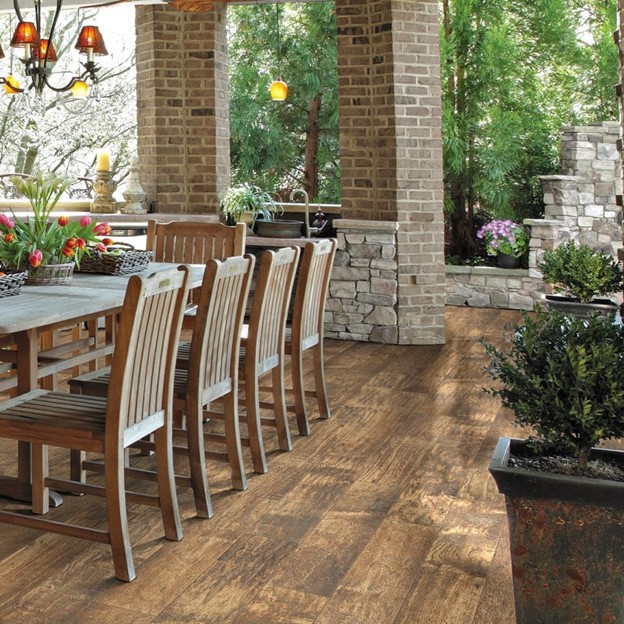Wood Look Tile
Aug 11, 2022 | Carpet One Floor & Home
The Sophisticated Difference That Wood-Look Tiles Can Make
Wood-look tiles are a trend that is taking the interior design world by storm. Combining the timeless appeal of natural hardwood flooring with the durability and low maintenance of tile, wood-look tiles offer a sophisticated and practical solution for any home.
From their uncanny resemblance to real wood to their impressive versatility and resilience, discover how these tiles can elevate the elegance and functionality of your home while providing a stylish, long-lasting alternative to traditional flooring options.
Natural Hardwood But Not Quite
Wood-look tile has the remarkable ability to transform a home by seamlessly blending the natural warmth and beauty of natural wood with the durability and low maintenance of tile. These tiles mimic the rich textures and grain patterns of real wood, bringing a sense of elegance and coziness to any space without the concerns of warping, scratching, or staining.
Ideal for high-traffic areas and rooms prone to moisture, such as kitchens, bathrooms, and basements, wood-look tiles provide a practical and stylish tile floor solution. As an added bonus, their design versatility allows for a variety of layouts and patterns, from traditional planks to herringbone and chevron, enabling homeowners to create custom looks that enhance their personal style.
With a wood-look tile floor, you can achieve the timeless charm of hardwood floors while enjoying the benefits of traditional tile flooring.
Where Wood-Look Tiles Work Well
The wood look is ideal for a number of areas in your and is best suited to modern, rustic, industrial, and coastal interior design styles. Here are some of the spaces that are well suited to wood tile.
- Living Room: Wood-look tile can create a warm and inviting atmosphere in your living room while offering the durability that this high-traffic area needs. And thanks to them being scratch-resistant, they're great for homes with kids and pets.
- Kitchen: In the kitchen, wood-look tile provides the beauty of hardwood without the susceptibility to moisture and spills. The wood look makes it easy to create a beautiful farm-style kitchen.
- Entryways and Hallways: The entryway is another high-traffic area where wood tile can shine. Wood-look tile offers a stylish first impression while standing up to dirt, moisture, and wear from frequent foot traffic.
- Dining Room: Incorporate natural wood with the benefits of tile into your dining area to add a touch of elegance without worrying about messes. Wood-look tile works particularly well if you have a fireplace in your dining room.
- Outdoor Spaces: Some wood-look tiles are designed for outdoor use and can be a great choice for patios, decks, and other outdoor living areas. They provide the authentic appearance of wood with the durability needed to withstand the elements.

Wood-Look Tile: Is Porcelain or Ceramic Tile Best?
Wood effect tiles are available in both porcelain and ceramic varieties, but which is better suited to your home?
Both materials offer unique benefits, but the best choice depends on your specific needs and the location of the tile installation. Porcelain wood tiles are denser, more durable, and highly resistant to water, making them ideal for high-traffic areas, bathrooms, kitchens, and outdoor spaces. Their strength ensures that porcelain tile can withstand heavy use and fluctuating temperatures without compromising on style.
On the other hand, ceramic tile is typically more affordable and easier to cut, which can simplify installation, especially in areas with intricate layouts. While they are also durable and water-resistant, they may not be as resistant to moisture as porcelain tiles, making them better suited for areas like living rooms, bedrooms, and hallways. Ultimately, both options can give you that beautiful wood look, so your choice should consider factors such as location, budget, and desired durability.
If you're ready to transform your space with wood effect tiles, browse our extensive collection of tile flooring here.